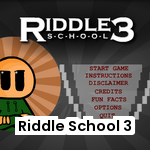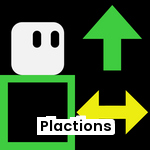POPULAR LESSONS
-
lesson 1

-
lesson 2

-
lesson 3

-
lesson 4

-
lesson 18

-
lesson 26

-
lesson 27

-
lesson 33

-
lesson 34

-
lesson 42

-
lesson 43

-
lesson 51

-
lesson 59

-
lesson 61

-
lesson 65

-
lesson 69

-
lesson 76

-
lesson 82

-
lesson 119

-
lesson 129

EDITOR CHOICE LESSONS
-
lesson 132

-
lesson 170

-
lesson 178

-
lesson 181

-
lesson 182

-
lesson 183

-
lesson 190

-
lesson 191

-
lesson 211

-
lesson 227

-
lesson 228

-
lesson 238

-
lesson 241

-
lesson 242

-
lesson 243

-
lesson 244

Mathematics Lessons: Unlocking the Power of Numbers
Mathematics is often regarded as the language of the universe. It is a subject that holds the key to understanding patterns, structures, and changes in the world around us. From the numbers we use in daily life to complex theories in physics, mathematics plays a crucial role in shaping our understanding of everything. This article will explore the significance of mathematics lessons, how they impact students, and why mastering this subject is essential for future success.
The Foundation of Problem-Solving
At its core, mathematics teaches students how to think critically and solve problems. Whether you're learning simple addition or tackling advanced calculus, every mathematical problem presents a challenge that requires logic and reasoning. This problem-solving skill is invaluable, not just in math class but in everyday life. From budgeting expenses to making decisions in business, the ability to analyze a situation and find a solution is something everyone needs.
Mathematics lessons provide a structured way to develop these critical thinking skills. They introduce students to different methods of approaching problems, such as breaking down complex tasks into smaller, manageable parts. Over time, students learn to apply these techniques not just in math but in other subjects like science, technology, and even literature.
Building a Strong Foundation for the Future
One of the most important reasons to focus on mathematics is that it lays the groundwork for many other fields of study. Subjects like physics, chemistry, engineering, and computer science all rely heavily on mathematics. Without a solid understanding of math, it would be nearly impossible to excel in these areas.
For example, consider the field of computer programming. Programmers need to understand algorithms, which are mathematical processes that computers follow to solve problems. In engineering, mathematical equations are used to design bridges, buildings, and machines that are safe and functional. Even in the arts, math plays a role in music theory and visual design, where proportions, symmetry, and patterns are key.
The Importance of Practice
One of the key aspects of learning mathematics is practice. Unlike some subjects where memorization may be enough, math requires regular and consistent practice to truly master. Just like learning a musical instrument, students must put in time and effort to become proficient in math.
Math lessons typically start with basic concepts like addition, subtraction, multiplication, and division. Once students have mastered these foundational skills, they move on to more complex topics such as fractions, decimals, algebra, and geometry. Each new topic builds on the previous one, so it's important to have a solid understanding of the basics before moving on to more advanced material.
This cumulative nature of math makes regular practice even more essential. Skipping over important lessons or not fully understanding a concept can create gaps in knowledge that make it harder to learn more advanced topics later on. That's why math teachers often assign homework and encourage students to work on extra problems outside of class.
Making Math Fun and Engaging
Many students struggle with mathematics because they find it difficult or boring. However, there are many ways to make math lessons more engaging and enjoyable. One effective method is to show students how math is used in real life. For example, teachers can explain how math is used in sports statistics, video game design, or fashion.
Another approach is to incorporate technology into math lessons. Interactive apps, online games, and virtual simulations can make abstract math concepts more tangible and easier to understand. Many schools now use tablets or computers in the classroom, allowing students to practice math problems in a fun, interactive way.
Additionally, group work and hands-on activities can help students engage with the material in a more meaningful way. Working together to solve problems or build mathematical models helps students understand concepts better than just reading from a textbook or listening to a lecture.
Overcoming Math Anxiety
Math anxiety is a common problem among students. This is the feeling of fear or tension when faced with math problems, which can make it difficult to learn and perform well in the subject. Fortunately, there are ways to overcome this anxiety and build confidence in math.
First, it's important for students to approach math with a positive mindset. Many students believe that they are "bad at math" and that they'll never improve. This negative attitude can become a self-fulfilling prophecy. Instead, students should focus on the progress they're making, even if it's slow.
Teachers and parents can also help by providing encouragement and support. When students feel that they're capable of solving math problems, they're more likely to succeed. It's also helpful to break down problems into smaller steps so that they seem less overwhelming.
Finally, regular practice and review can help reduce math anxiety. The more familiar students are with math concepts, the less intimidating they become. With enough practice, even the most challenging math problems can become manageable.
Conclusion
Mathematics is a vital subject that teaches students valuable skills such as problem-solving, critical thinking, and logical reasoning. It serves as the foundation for many other fields of study and is essential for success in the modern world. While math can be challenging, regular practice, positive reinforcement, and engaging lessons can help students overcome their difficulties and unlock the power of numbers.
By mastering mathematics, students not only improve their academic performance but also equip themselves with the tools they need to thrive in their future careers and personal lives. Whether they become scientists, engineers, artists, or entrepreneurs, a solid understanding of math will help them navigate the complex world around them.
ALL LESSONS
-
lesson 159

-
lesson 49

-
lesson 16

-
lesson 104

-
lesson 121

-
lesson 116

-
lesson 199

-
lesson 222

-
lesson 206

-
lesson 54

-
lesson 40

-
lesson 123

-
lesson 236

-
lesson 86

-
lesson 98

-
lesson 6

-
lesson 167

-
lesson 178

-
lesson 23

-
lesson 73

-
lesson 52

-
lesson 114

-
lesson 137

-
lesson 83

-
lesson 69

-
lesson 177

-
lesson 58

-
lesson 74

-
lesson 157

-
lesson 182

-
lesson 210

-
lesson 72

-
lesson 244

-
lesson 198

-
lesson 240

-
lesson 168

-
lesson 120

-
lesson 45

-
lesson 179

-
lesson 196

-
lesson 176

-
lesson 238

-
lesson 204

-
lesson 5

-
lesson 28

-
lesson 140

-
lesson 220

-
lesson 170

-
lesson 38

-
lesson 10

-
lesson 148

-
lesson 138

-
lesson 155

-
lesson 151

-
lesson 12

-
lesson 212

-
lesson 48

-
lesson 65

-
lesson 62

-
lesson 128

-
lesson 20

-
lesson 153

-
lesson 224

-
lesson 50

-
lesson 189

-
lesson 223

-
lesson 80

-
lesson 4

-
lesson 127

-
lesson 93

-
lesson 205

-
lesson 195

-
lesson 221

-
lesson 35

-
lesson 230

-
lesson 207

-
lesson 145

-
lesson 239

-
lesson 25

-
lesson 44

-
lesson 156

-
lesson 36

-
lesson 181

-
lesson 215

-
lesson 51

-
lesson 75

-
lesson 87

-
lesson 234

-
lesson 108

-
lesson 229

-
lesson 165

-
lesson 101

-
lesson 192

-
lesson 130

-
lesson 126

-
lesson 232

-
lesson 107

-
lesson 135

-
lesson 129

-
lesson 3

-
lesson 214

-
lesson 70

-
lesson 185

-
lesson 166

-
lesson 8

-
lesson 53

-
lesson 136

-
lesson 171

-
lesson 231

-
lesson 161

-
lesson 112

-
lesson 13

-
lesson 9

-
lesson 105

-
lesson 61

-
lesson 103

-
lesson 33

-
lesson 225

-
lesson 43

-
lesson 174

-
lesson 67

-
lesson 211

-
lesson 169

-
lesson 117

-
lesson 39

-
lesson 208

-
lesson 102

-
lesson 81

-
lesson 56

-
lesson 26

-
lesson 216

-
lesson 203

-
lesson 124

-
lesson 134

-
lesson 180

-
lesson 11

-
lesson 76

-
lesson 228

-
lesson 173

-
lesson 96

-
lesson 152

-
lesson 243

-
lesson 106

-
lesson 154

-
lesson 242

-
lesson 193

-
lesson 119

-
lesson 1

-
lesson 201

-
lesson 125

-
lesson 122

-
lesson 99

-
lesson 22

-
lesson 79

-
lesson 110

-
lesson 213

-
lesson 89

-
lesson 118

-
lesson 2

-
lesson 66

-
lesson 186

-
lesson 183

-
lesson 163

-
lesson 95

-
lesson 158

-
lesson 21

-
lesson 217

-
lesson 15

-
lesson 85

-
lesson 149

-
lesson 29

-
lesson 141

-
lesson 63

-
lesson 91

-
lesson 24

-
lesson 77

-
lesson 233

-
lesson 18

-
lesson 68

-
lesson 200

-
lesson 47

-
lesson 209

-
lesson 143

-
lesson 109

-
lesson 88

-
lesson 27

-
lesson 139

-
lesson 31

-
lesson 34

-
lesson 42

-
lesson 218

-
lesson 41

-
lesson 172

-
lesson 60

-
lesson 84

-
lesson 241

-
lesson 147

-
lesson 131

-
lesson 162

-
lesson 133

-
lesson 188

-
lesson 194

-
lesson 191

-
lesson 59

-
lesson 14

-
lesson 227

-
lesson 132

-
lesson 46

-
lesson 100

-
lesson 235

-
lesson 37

-
lesson 150

-
lesson 111

-
lesson 115

-
lesson 164

-
lesson 202

-
lesson 160

-
lesson 64

-
lesson 226

-
lesson 184

-
lesson 237

-
lesson 19

-
lesson 92

-
lesson 71

-
lesson 219

-
lesson 94

-
lesson 144

-
lesson 113

-
lesson 90

-
lesson 190

-
lesson 197

-
lesson 17

-
lesson 55

-
lesson 7

-
lesson 82

-
lesson 187

-
lesson 175

-
lesson 57

-
lesson 146

-
lesson 78

-
lesson 32

-
lesson 97

-
lesson 142

-
lesson 30

